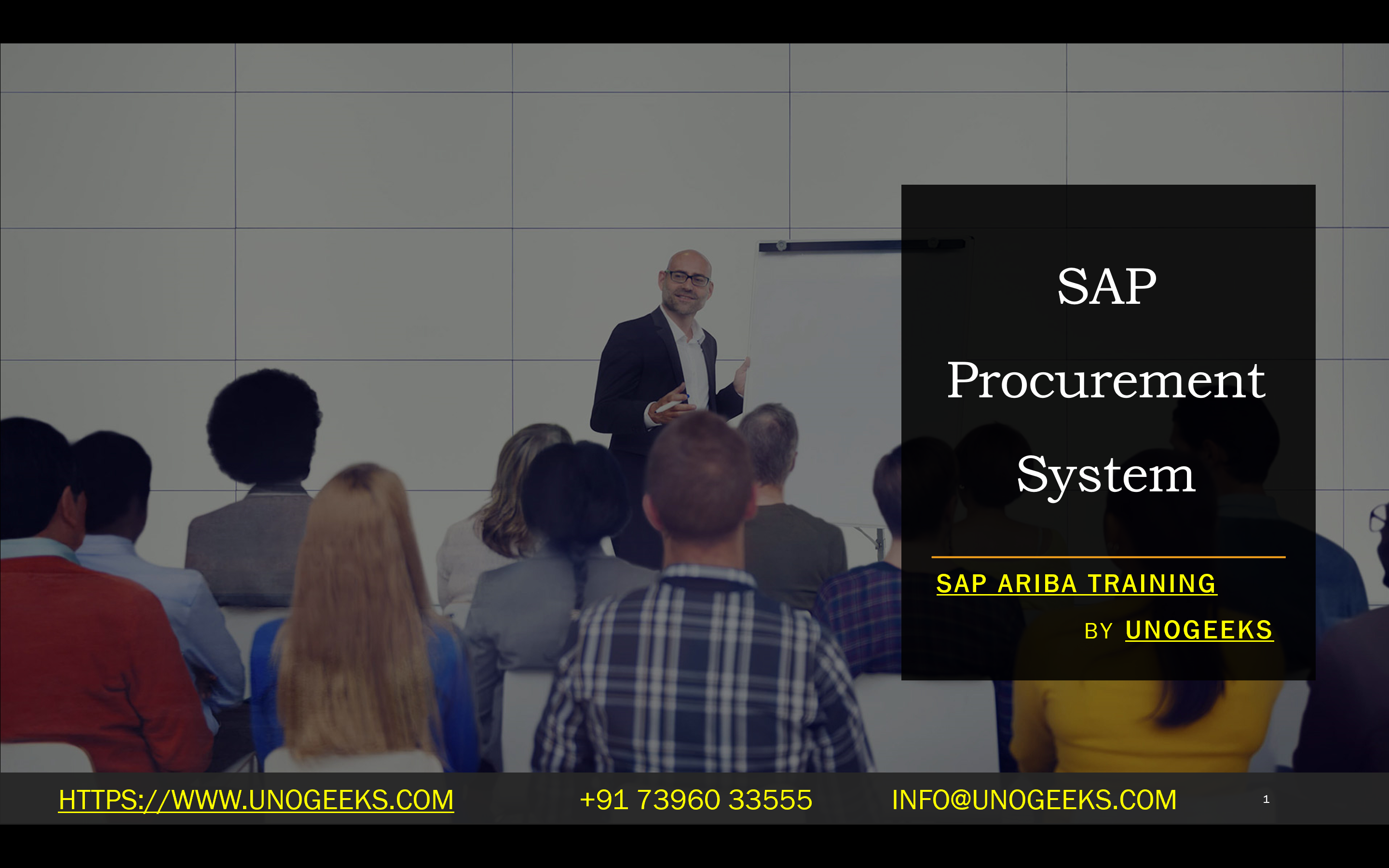SAP Procurement System
SAP Procurement: Streamlining and Optimizing Your Purchasing Processes
SAP is a renowned leader in the world of Enterprise Resource Planning (ERP) systems. Its procurement solutions are pivotal in helping organizations maximize efficiency, reduce costs, and gain better control over their spending. This blog will explore SAP procurement’s fundamental components and functionalities.
Critical Concepts in SAP Procurement
- Source-to-pay (S2P) refers to the complete process encompassing everything from identifying a need for goods or services to the final payment to the supplier. SAP’s procurement solutions streamline this entire process.
- Operational Procurement: The day-to-day purchasing of goods and services essential for running an organization’s operations.
- Strategic Procurement: A broader approach focused on long-term planning, supplier relationship management, contract negotiation, and risk assessment—all designed to optimize procurement strategies and gain a competitive edge.
SAP Procurement Modules
SAP offers a range of modules to cover different aspects of the procurement cycle:
- SAP Materials Management (MM): The core module within SAP’s procurement system that manages:
- Purchase Requisitions
- Purchase Orders
- Goods Receipts
- Inventory Management
- Invoice Verification
- SAP Supplier Relationship Management (SRM): A powerful tool for streamlining interactions with suppliers, including:
- Supplier self-service portals
- Sourcing and contract management
- Supplier collaboration features
- SAP Ariba: A cloud-based procurement platform ideal for larger or more complex procurement needs. Ariba offers:
- Guided buying experiences
- E-procurement and catalog management
- Extensive supplier networks
- Advanced analytics
Benefits of Using SAP for Procurement
- Centralized Procurement Data: SAP provides a single source of truth for all procurement-related data, improving visibility, decision-making, and reporting accuracy.
- Enhanced Efficiency: Automation capabilities reduce manual tasks, allowing procurement teams to focus on more strategic work.
- Cost Savings: SAP helps you negotiate better deals, streamline processes, and avoid maverick spending (purchases outside of preferred channels).
- Improved Supplier Relationships: SAP fosters supplier collaboration through portals and streamlined communication processes.
- Compliance and Risk Mitigation: Automated workflows and controls reinforce adherence to internal policies and help to reduce procurement risks.
Getting Started with SAP Procurement
Implementing SAP for your procurement operations requires careful consideration and planning:
- Needs Assessment: Thoroughly analyze your organization’s procurement processes, pain points, and desired objectives.
- Solution Selection: Choose the SAP procurement modules best aligned with your needs and budget, factoring in the potential for future growth.
- Implementation Partner: Working with experienced SAP consultants ensures a smooth implementation and helps you fully leverage the system’s capabilities.
The Future of SAP Procurement
SAP is constantly innovating in procurement. Trends like artificial intelligence, machine learning, and big data analytics are shaping the future of SAP’s procurement solutions and driving further automation, optimization, and insights.
Conclusion:
Unogeeks is the No.1 IT Training Institute for SAP Training. Anyone Disagree? Please drop in a comment
You can check out our other latest blogs on SAP ARIBA here – SAP ARIBA Blogs
You can check out our Best In Class SAP ARIBA Details here – SAP ARIBA Training
Follow & Connect with us:
———————————-
For Training inquiries:
Call/Whatsapp: +91 73960 33555
Mail us at: info@unogeeks.com
Our Website ➜ https://unogeeks.com
Follow us:
Instagram: https://www.instagram.com/unogeeks
Facebook: https://www.facebook.com/UnogeeksSoftwareTrainingInstitute
Twitter: https://twitter.com/unogeek
